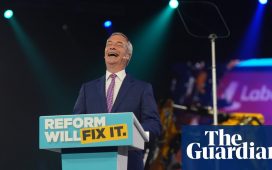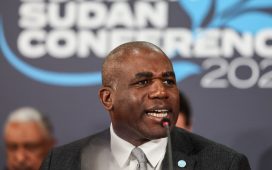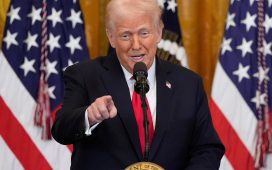As the year turns, the next general election looms ever larger. One thing can, however, be said about the election already. Whenever it finally comes and whatever the result, the turnover of MPs in the House of Commons looks likely to be unusually large. At least 83 MPs have announced that they will be retiring. More are certain to follow. Others will lose their seats. If the swing between the parties is dramatic, the turnover may approach the level reached in 1997, when 249 retired or defeated MPs did not return to Westminster, and a similar number of new MPs arrived.
So get ready for the faces of politics to change. But what about the face of British politics itself? This question matters. The current parliament will certainly not be missed. It has been studded with financial misconduct, lobbying abuses, lockdown parties, sexual harassment, bullying allegations, absenteeism and misleading ministerial statements. Many of the byelections since 2019 have been triggered by scandals. Another MP, Scott Benton, faces a 35-day suspension for reportedly offering his lobbying services to a bogus company in return for up to £48,000 a year on the side.
The origins of the standards problem go back a long time. The impact of the MPs’ expenses scandal, for instance, is still being felt 14 years on. The question in 2024 will be whether the next generation of leaders and MPs will actually look, sound and behave differently, and whether trust in politics can be rebuilt more enduringly if they do. We must fervently hope so. But it will not happen merely by electing a Labour government and a new generation of professional politicians.
What can be done to improve our politics, our standards in public life, our democracy and our trust in government? There is no single answer. Some things that need to change are structural. Reforming the electoral system is definitely one of them. But countries with fairer electoral systems than Britain’s first past the post have political scandals too. Parliaments with fewer antique conventions than Westminster are not automatically temples of rationality either. These are not reasons for keeping the current systems, but they are reasons for not having exaggerated expectations.
The trust problem
Changing the culture and behaviour of politics matters at least as much. Too often we have the wrong sort of MPs with the wrong values. One glaring example is the former Tory leader Liz Truss, who managed 49 days as prime minister. On Friday it was confirmed that she shamelessly asked for – and gained – peerages and gongs for those involved in her catastrophic time in No 10. Each scandal damages the whole. The wide-ranging nature of the political trust problem is widely sensed. Many books have been written on the subject. The 2023 Reith lectures by Prof Ben Ansell have touched on the problem. Academic and thinktank surveys abound, including key work by University College London’s Constitution Unit.
But the trust problem has been inadequately addressed by politics itself. Politicians themselves are often keenly aware of this. At the end of 2023, Britain was a country in which only 9% of the people said that they “generally” trusted political leaders. This is the lowest figure since records began 40 years ago. A “lack of faith” in politics and politicians is now seen by voters as one of the top five problems facing the country. Think about that. British people put their lack of faith in politics above inequality, the environment, education and crime as national problems. The issue goes deeper than mere cynicism. Cynicism about politics has existed since well before the time HL Mencken said that a good politician was as unthinkable as an honest burglar. Today, though, indignation is morphing – some believe it has already morphed – into a more general despair over the ability of democratic politics and parliamentary government to solve problems.
Pessimism has deepened. Two events have had particularly negative impacts. One was Brexit, causing divides deepened by parliamentary chaos, leading to political demoralisation on both sides. The other was Downing Street’s partying culture during Covid lockdowns. Both blows were intimately connected with Boris Johnson. He bears a heavy personal responsibility. But Mr Johnson is not the sole reason for the political trust crisis.
Nor is the problem confined to Britain. In 2022, the Edelman Trust Barometer, an annual international survey, found that 66% of people across 27 nations, including France, Germany, Italy and the US, agreed that “my country’s government leaders are purposely trying to mislead people by saying things they know are false or gross exaggerations”. A similar 67% said the same about journalists and reporters. These findings should have been a wake-up call. They were not.
Vicious circle
It can sometimes feel as if we live in a country where people can see perfectly well that there are problems, but where a majority simply do not believe the media, and don’t think politicians can do much about solving them either. Fewer than half of British adults think the state is run for the benefit of all. At the height of the Brexit rows, more than half said they wanted a strong leader who would break the rules. Among the under-35s, more than 60% still do. Only a quarter are satisfied with the way British democracy is working.
Politicians have often treated institutional and political change as second-order issues. Real voters, they claim, are more concerned with bread and butter matters. Politicians are wrong to think this way. First, because it is possible to think more than one thing at the same time. Second, because the polls show that public concern about politics is now substantial, not marginal. And last, because a lack of faith in politics feeds into a vicious circle of low expectations.
It may seem naive to call for better qualified politicians, a stronger public service ethos, tighter standards in public life, stronger rules about lobbying, restrictions on honours, more intellectual honesty in debate, greater independence among MPs and better media coverage. All the same, these are all morally desirable changes. Allowing things to stay as they are because they are difficult to change, or because human beings are frail, is a collective cringe. We can do better. Our politicians must do better.
The death of Alistair Darling at the end of November was a reminder of one of the things that politics needs to regain. Not many politicians in Britain are respected across the spectrum of opinion. The former chancellor was an exception. He was informed, calm, sympathetic and truthful. He put the country first. When he said something, it made sense. But there are not enough politicians like him. Too many are the very opposite. They have to change, however difficult that may be.











